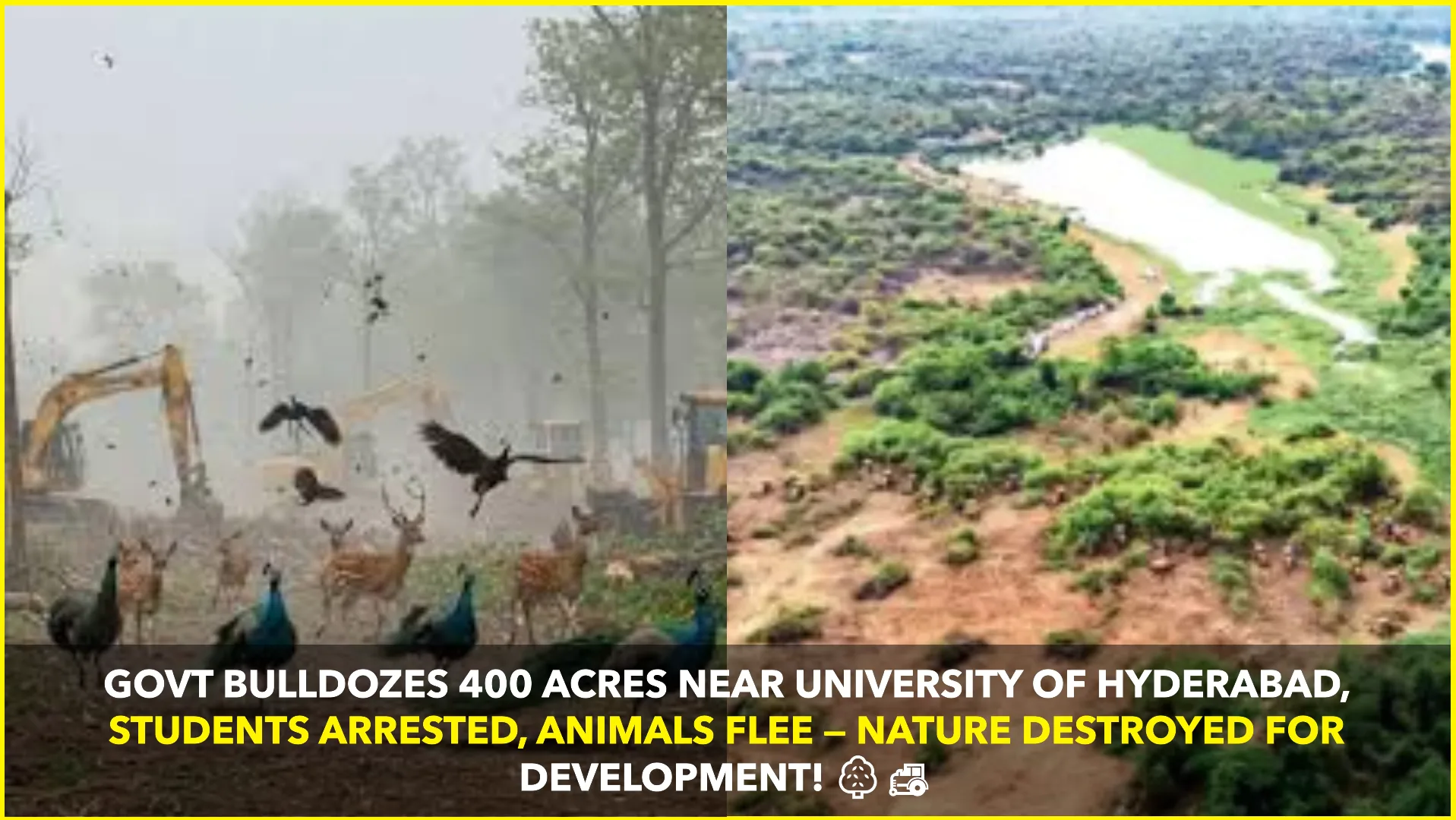In March 2025, the Telangana government’s decision to auction 400 acres of land in Kancha Gachibowli, adjacent to the University of Hyderabad (UoH), sparked significant protests from students, faculty, and environmental activists. The land, known for its rich biodiversity, became a focal point of contention between development ambitions and environmental conservation.
Background of the Land Dispute
The 400-acre parcel in question has a complex history. Originally allotted to IMG Academies Bharat Private Limited in 2004 for sports infrastructure development, the land was reclaimed by the state government after the company failed to meet development obligations. In May 2024, the Supreme Court ruled in favor of the Telangana government, confirming its ownership. Subsequently, the Telangana State Industrial Infrastructure Corporation (TSIIC) proposed auctioning the land for infrastructure projects.
Ecological Significance of Kancha Gachibowli
Kancha Gachibowli is recognized as one of Hyderabad’s last remaining urban forests, hosting approximately 237 bird species, including migratory birds, and various wildlife such as spotted deer, wild boars, star tortoises, and Indian rock pythons. The area also encompasses notable geological formations like the Mushroom Rock, a heritage site. Environmentalists argue that developing this land would irreversibly damage the city’s ecological balance.
Protests and Arrests
On March 13, 2025, over 500 UoH students, supported by faculty and environmental activists, marched to the contested site, demanding an immediate halt to the auction. They emphasized the environmental and educational value of the land, expressing concerns about the potential destruction of biodiversity and disruption of the local ecosystem. The protest led to the arrest of several students, escalating tensions between the university community and the state authorities.
Government’s Stance and Clarifications
In response to the protests, the Telangana government issued a statement on March 31, 2025, asserting that the 400 acres are state-owned and not part of the university’s property. Officials emphasized that development plans would be executed responsibly, ensuring the protection of local ecosystems and heritage sites like the Mushroom Rock. They also accused certain political groups and real estate entities of misleading students for their own interests.
Political Reactions
The issue attracted attention from various political figures. KT Rama Rao, working president of the Bharat Rashtra Samithi (BRS), pledged to reclaim the 400 acres and develop it into a Central Park-style eco-park if his party returned to power. He criticized the current government’s approach and expressed solidarity with the protesting students, warning potential buyers of the land about possible losses. The Times of India
Environmental Concerns and Public Sentiment
Environmental groups, including the Save City Forest Collective (SCFC), highlighted the area’s ecological importance, noting that Kancha Gachibowli serves as a “green lung” for Hyderabad, contributing significantly to air quality and biodiversity. They argued that the auction contradicted legal and environmental safeguards, emphasizing the need for sustainable urban development that prioritizes environmental preservation over short-term financial gains.
Conclusion
The controversy surrounding the auction of the 400-acre land in Kancha Gachibowli underscores the ongoing debate between development and environmental conservation. While the Telangana government emphasizes infrastructure growth and economic benefits, students, environmentalists, and some political leaders stress the importance of preserving Hyderabad’s dwindling green spaces. The resolution of this dispute will likely have lasting implications for the city’s environmental landscape and development trajectory.The New Indian Express+2NewsMeter+2Hyderabad Mail+2










